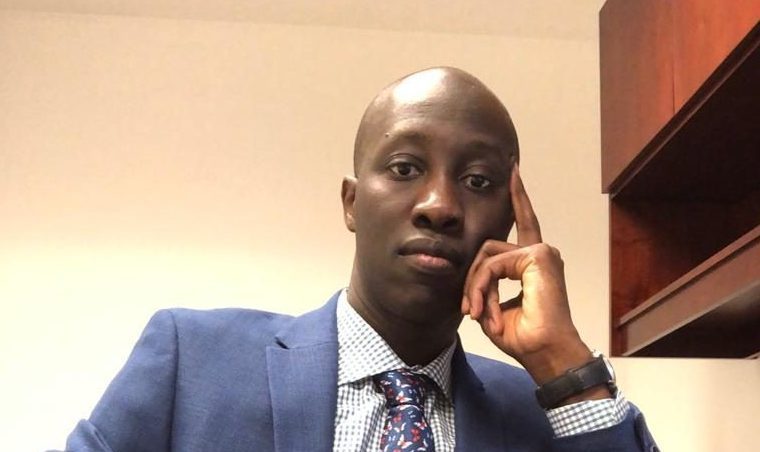By Sarjo Barrow, Esq.
I have reviewed Section 77 of the 1997 Constitution thoroughly. While my research is limited to Section 77(1)-(3), it is my opinion that the President is not insulated from National Assembly’s requests to attend sessions for the reason stated in Section 77(2) because of subsection (3). I acknowledge that my research has not revealed if the Courts have previously addressed this issue. Also, the 1997 Constitution mirrors that of Ghana’s 1992 Constitution, but the framers deviated from Ghana under this provision. See Art. 111 of Ghana’s 1992 Constitution. Notwithstanding, I believe that the statutory text alone is enough to resolve this issue. (Contemporary case laws intentionally omitted).
Under Section 77(1), the President is required to attend, at least one sitting of the National Assembly (“NA”) in a year, and address sessions on the condition of The Gambia, government policies, and administration. Here, the framers intentionally used “shall” to show that this requirement is mandatory—the President MUST fulfill this constitutional requirement every year. It’s important to note that a NA request is not a condition precedent here. Instead, a mandatory obligation is placed on the Chief Executive to appraise the NA about the condition of the country, his policies, and his administration.
While under Section 77(2), the NA is vested with the power to request the President to attend sittings where matters of national importance are debated. Although the NA may not require the President’s attendance at such debates, the discretion lies solely with the NA and not the President. Of course, the framers left the discretion to the NA with the understanding that it would exercise it appropriately. Significantly, the NA’s power to request the President’s appearance under Section 77(2) is limited to discussions involving national importance. By expressively referencing “discussion of a matter of national importance,” the Constitution specifies when the NA can request the appearance of the president at the Assembly invoking Section 77(2). Thus, based on the plain reading of the text, for the NA to trigger Section 77(2), the matter being debated must be of national importance. Since the Constitution fails to define what constitutes a national importance debate, and the NA has not drafted legislation to such effect. I think this area is going to be a subject of supreme court litigation. Still, considering the text expressively gives the NA discretion regarding Section 77(2), it can be argued that it is the NA that can determine what constitutes a discussion of national importance.
Now, ostensibly, a quick reading of Section 77(3) would seem to suggest that the President is not required to comply with the NA’s request under Section 77(2) because the Constitution equally empowers the president to send the VP in his/her stead. And proponents of Executive Power have offered this explanation or reasoning. However, such a reading would render the entire Section 77(2) nugatory. To posit that the President is insulated from the reach of the NA by Section 77(3) is ridiculous. It’s, of course, true that the framers understand the importance of the office of president. To avoid interference with his job, the Constitution does not only make it obligatory for the VP to answer for the President in the NA for matters affecting the President, but it also empowers the President to send a message to the NA or have a message read on his behalf by the VP. Still, just like the limits of Section 77(2), the framers intentionally limit the matters in which the VP can stand in for the President. While the President is entitled to send a message to the NA through the VP or have such a message read on his behalf by the VP, under this provision, the VP can only represent the President for matters affecting the president. Therefore, the NA can still request the President’s attendance for discussions of national importance.
The question remains whether all matters affecting the President are matters of national importance. I disagree. Certainly, there are matters affecting the President that would qualify as matters of national importance. But not all matters affecting the President are matters of national importance. Indeed, if framers believed that all matters of national importance are matters affecting the President, there would not be Section 77(2). Doing so would mean the Court must be willing to impute to the drafters such a contradictory and absurd purpose. See e.g. United States v. Bryan, 339 U.S. 323, 342 (1950). Resisting this straightforward understanding of the plain text would require the Courts to not give the law’s terms their ordinary meaning. See Hon. Halifa Sallah & Ors v. Clerk of the National Assembly & Ors (2002-2008) GR 244.
To conclude, Section 77 does not have an in-build enforcement mechanism. Thus, it raises the question of what happens if the President refuses to heed NA’s request to attend a sitting of national importance without good cause or in bad faith. Well, the Constitution empowers the NA to impeach the President. And among the grounds of impeachment under Section 67(1), is the President’s willful violation of the Constitution.
AUTHOR NOTE: Sarjo Barrow is an Attorney with the U. S. Department of Homeland Security (Human Rights Program).
| Musa Camara | 9:46 PM (0 minutes ago) |   | |
| to me, Musa |

